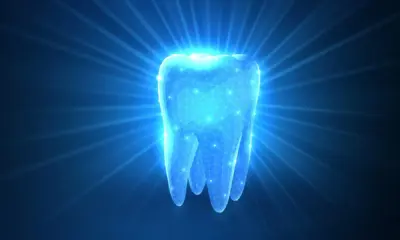Health
Hair Test Could Reveal Children’s Risk for Anxiety and Depression

Research indicates that measuring stress levels through hair samples may help identify children at higher risk for depression and anxiety, particularly among those living with chronic physical illnesses. A study co-authored by Mark Ferro, a professor at the University of Waterloo, highlights the potential of using hair cortisol as a non-invasive biomarker to screen children and assess the effectiveness of treatment programs.
According to the research, approximately 40 percent of children in Canada are affected by chronic physical illnesses (CPI), a statistic that has been steadily increasing over recent decades. The study emphasizes that children with elevated cortisol levels are significantly more likely to encounter mental health challenges, reporting rates of anxiety and depression between 20 percent and 50 percent. This prevalence is starkly higher than that observed in their healthy peers.
Understanding the Implications of Elevated Cortisol Levels
The implications of these findings are profound, particularly given the potential long-term effects of untreated mental health conditions. Children grappling with anxiety and depression often experience a diminished quality of life, which can include increased healthcare utilization and, in severe cases, suicidal ideation. By utilizing hair samples to assess cortisol levels, healthcare providers may gain critical insights into a child’s stress response and overall mental health.
Ferro stated, “Hair cortisol offers a non-invasive, easy-to-collect biomarker that could one day be used to screen children and track whether treatments or support programs are helping to reduce stress.” This innovative approach to monitoring mental health could prove invaluable, especially in pediatric care where traditional assessment methods may not be as effective.
As mental health issues among children continue to rise, the need for effective screening tools becomes increasingly urgent. The research underscores the importance of early intervention, as addressing mental health risks early could lead to better outcomes for affected children.
Future Directions and Potential Benefits
In light of these findings, further research is needed to establish standardized protocols for using hair cortisol as a screening tool. The potential to identify at-risk children earlier could lead to timely interventions, which are crucial for improving mental health trajectories.
Healthcare professionals and policymakers are urged to consider this approach as part of a broader strategy to enhance mental health support for children with chronic physical conditions. By integrating innovative screening methods like hair cortisol analysis, it may be possible to mitigate some of the mental health challenges that accompany chronic illnesses, ultimately leading to healthier outcomes for vulnerable populations.
The study serves as a call to action for continued exploration into the connections between physical health and mental wellbeing, particularly in children. As the landscape of pediatric healthcare evolves, the integration of such novel approaches could redefine how mental health risks are assessed and addressed in the future.
-

 Science2 months ago
Science2 months agoUniversity of Hawaiʻi at Mānoa Joins $25.6M AI Initiative for Disaster Monitoring
-

 Health2 months ago
Health2 months agoNew Gel Offers Hope for Regrowing Tooth Enamel in Dentistry
-

 Science1 month ago
Science1 month agoALMA Discovers Companion Orbiting Red Giant Star π 1 Gruis
-

 Lifestyle1 month ago
Lifestyle1 month agoPark Jung Min’s Endearing Moment with Hwasa Steals Show at Awards
-

 Science2 months ago
Science2 months agoIROS 2025 to Showcase Cutting-Edge Robotics Innovations in China
-

 Lifestyle2 months ago
Lifestyle2 months agoStone Island’s Logo Worn by Extremists Sparks Brand Dilemma
-

 Lifestyle2 months ago
Lifestyle2 months agoSampson County Celebrates Susie Faison’s 100th Birthday Milestone
-

 Lifestyle2 months ago
Lifestyle2 months agoMary Morgan Jackson Crowned Little Miss National Peanut Festival 2025
-

 Health2 months ago
Health2 months agoStartup Liberate Bio Secures $31 Million for Next-Gen Therapies
-

 Health2 months ago
Health2 months agoTop Hyaluronic Acid Serums for Radiant Skin in 2025
-

 Politics2 months ago
Politics2 months agoJudge Considers Dismissal of Chelsea Housing Case Citing AI Flaws
-

 Science2 months ago
Science2 months agoArizona State University Transforms Programming Education Approach









